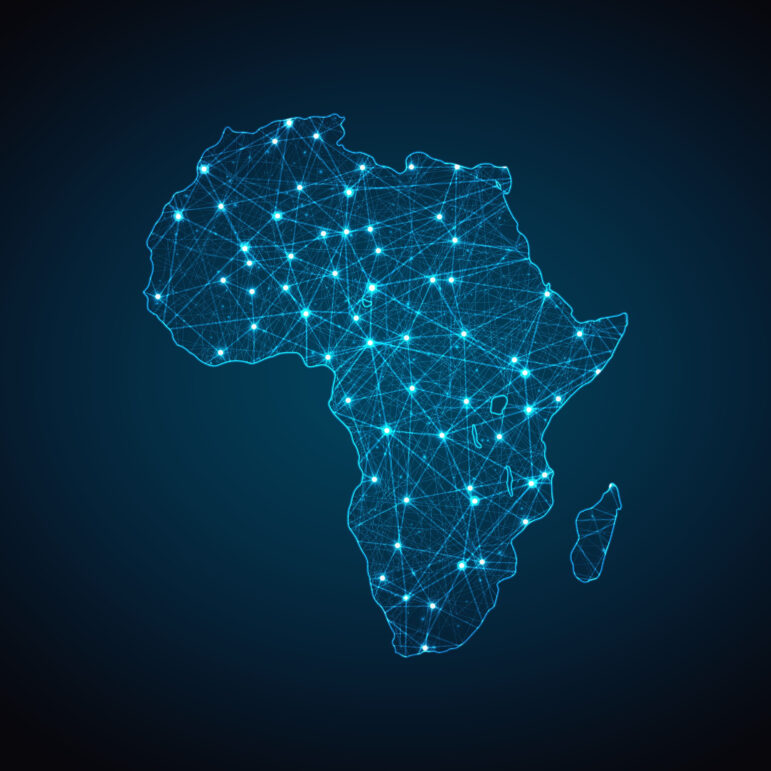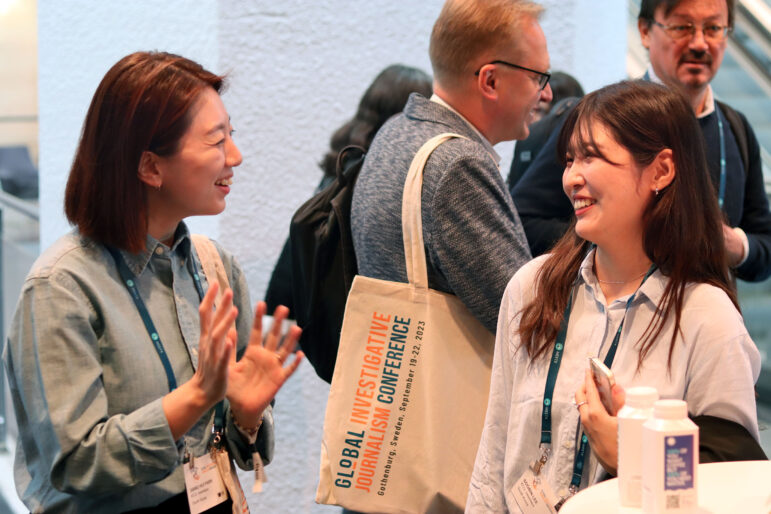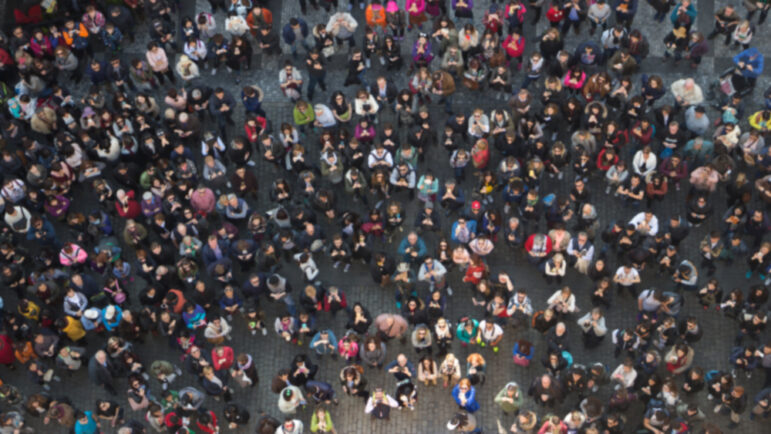

GIJN Africa: Funding and Grants
Read this article in
On 22 July 2024, GIJN published a new guide titled “Introduction to Fundraising for Investigative Journalism.” The guide offers tips on how to navigate the challenges of generating revenue, where to find grant opportunities, how to seek gifts and donations from individuals, and lots more.
Investigative journalism has always been an expensive undertaking but the increasing economic pressures around the world have further shrunk funding opportunities for watchdog journalism. This has made searching for funding for nonprofit investigative newsrooms even more difficult.
To help investigative newsrooms and journalists in Africa find funding opportunities, we have updated the list of nonprofit organizations offering grant support to watchdog journalism in Africa. While many are local, others are global but with Africa-centric operations dedicated to providing grants in support of investigative journalism in the region.
African Centre for Media Excellence (ACME)
Located in Kampala, Uganda, ACME has programs dedicated to offering grants for investigative journalism, as well as training journalists on the continent to excel at the craft. ACME’s primary goal is to make the media a more effective platform for providing information on public affairs, a tool for monitoring official power, and a forum for vibrant public debate. For its grant programs, ACME often partners with international nonprofits such as the Ford Foundation, Revenue Watch Institute, Population Reference Bureau and MacArthur Foundation.
DW Akademie
DW Akademie is the international media development arm of Deutsche Welle, Germany’s public international broadcaster. It supports traditional media, community radio stations, and bloggers in 18 African countries. DW Akademie’s activities focus on strengthening high-quality, independent media and the sustainable development of training systems for media professionals. It provides grants to advance freedom of expression and access to information, especially for digital technologies.
Fojo Media Institute
Fojo Media Institute is an independent institute based at Sweden’s Linnaeus University but with an international presence. It works with national and regional partners to strengthen free, independent, and professional journalism. Fojo supports news media houses, other media organizations, and individual journalists, to be financially and politically independent. It helps in developing sustainable business concepts and provides a host of other media support services. Its sub-Saharan Africa programme currently has specific offices in three African countries — Ethiopia, Rwanda, and Zimbabwe — but runs and funds projects in several other countries.
Ford Foundation
The Ford Foundation is a prominent American nonprofit with regional offices in Nairobi, Lagos, and Johannesburg. It supports investigative journalism that holds leaders and institutions accountable, storytelling that seeks to give a voice to marginalized or silenced sections of society, and innovative projects aiming to connect and reach as many people as possible. Ford accepts unsolicited proposals, and their grant deadlines are rolling. Grant amounts range from between $50,000 to $1.25 million.
Henry Nxumalo Foundation
Founded by GIJN board member Anton Harber, a former Caxton professor of journalism at Wits University’s Journalism Department, this Foundation is named after a renowned South African journalist, Henry Nxumalo (“Mr. Drum”), who pioneered first-hand investigative reporting during the country’s tumultuous apartheid years. Since 2021, the Henry Nxumalo Foundation has offered grants to investigate environmental crimes in Africa, violence and looting in South Africa, and cross-border investigative journalism projects in any of Southern Africa’s 12 countries. Keep tabs on their website for new opportunities.
Hivos
A Dutch development organization with a global presence, Hivos provides grants to media organizations whose work aligns with its objectives and focus areas, including women’s rights and renewable energy. Hivos is particularly interested in innovative media organizations and journalism highlighting alternative solutions to persistent problems. It operates two regional hubs: in Kenya, for Eastern Africa, and in Zimbabwe, for Southern Africa. It also has national offices in South Africa, Zambia, Uganda, and Malawi.
International Women’s Media Foundation
Based in Washington, DC in the United States, this nonprofit’s offerings are tailored to women journalists and photographers. They include safety training, byline opportunities, emergency support, fellowships, and funding. The IWMF’s funding initiatives include the Fund for Women Journalists and its Emergency Fund. The Fund for Women Journalists supports educational opportunities, investigative reporting, and media development initiatives. The Emergency Fund provides assistance to women who are in danger as a result of their reporting. Both accept applications on a rolling basis.
Luminate
A spinoff from the Omidyar Network, the philanthropic firm Luminate was launched in 2018. It offers nonprofit grants and for-profit investments to organizations and civic tech and digital services that enable people to participate in governance, receive the services they need, and hold the powerful to account. It seeks to support nonprofit media organizations and collaborations between journalists, data scientists, and advocates; new membership models; innovative efforts to combat disinformation; and new ways to support press freedom. Headquartered in London, it has offices in Nairobi and currently focuses on organizations working in three sub-Saharan countries: Kenya, Nigeria, and South Africa. However, it is open to supporting compelling projects outside of its priority countries. Funding amounts vary.
Media Development Investment Fund (MDIF)
MDIF is a not-for-profit investment fund for independent media in countries where access to free and independent media is under threat. The organization provides affordable debt and equity financing supported by technical assistance to media companies that provide the news, information, and debate that people need to build free, thriving societies. Their mission is to prop up independent news organizations financially so that they can invest in their future and develop competitive, resilient businesses. They currently run two Africa programmes in South Africa and Nigeria.
Media Foundation for West Africa (MFWA)
MFWA is a media development NGO operating in all 16 West African countries. It has a freedom of expression program, and a media and good governance initiative that offers regular training opportunities and supports investigative journalism through grants. In 2018, it launched the West Africa Network for Investigative Journalists and organizes the annual West Africa Media Excellence Conference and Awards.
Media Institute of Southern Africa (MISA)
Founded in 1992, the Media Institute of Southern Africa is an umbrella organization of 11 national chapters in the Southern African Development Community. It is based in Windhoek, Namibia. MISA’s activities are geared towards promoting free, independent, and pluralistic media in the region through advocacy, capacity building for media workers, media freedom monitoring, campaigning for freedom of expression and right to information, and offering legal support. Activities vary in each national chapter, with program implementation determined by the political climate and needs in each country. The umbrella organization’s website has a resource centre that aggregates analyses, legislation, and reports. MISA chapters in Botswana, Malawi, Zambia, and Zimbabwe also have national media awards to promote excellence on a range of thematic issues.
Open Society Foundations
The Open Society Foundations are one of the biggest private funders of media projects worldwide. In July 2024, the organization completed a two-year restructuring exercise and revealed its first major new commitment. The new President of OSF is Binaifer Nowrojee, a Kenyan human rights lawyer who has served in several senior positions at the organization, including as East Africa Foundation Director. Review their past work in Africa here, and look out for new opportunities.
Pulitzer Center
The Pulitzer Center has developed a grant programme dedicated to underreported stories in Africa (with a rolling deadline). In addition, its Rainforest Journalism Fund supports reporting on tropical rainforests in Africa, Latin America, and Asia. In 2019, the fund started considering proposals from African journalists reporting for local and regional outlets. You can also apply for their Global Reporting Grants, which have no topic or reporting location restrictions.
Wits Africa-China Reporting Project
The Africa-China Reporting Project is hosted by the Wits Centre for Journalism at the University of the Witwatersrand in Johannesburg, South Africa. It aims to improve the quality of reporting on Africa-China issues by providing capacity-building opportunities for journalists. The project offers reporting grants, and funds training workshops and other opportunities for African and Chinese journalists to investigate complex dynamics and uncover untold stories. The grants, which are offered throughout the year, range between $300 and $3,000.
For more on funding and grants, go to the GIJN Help Desk.









